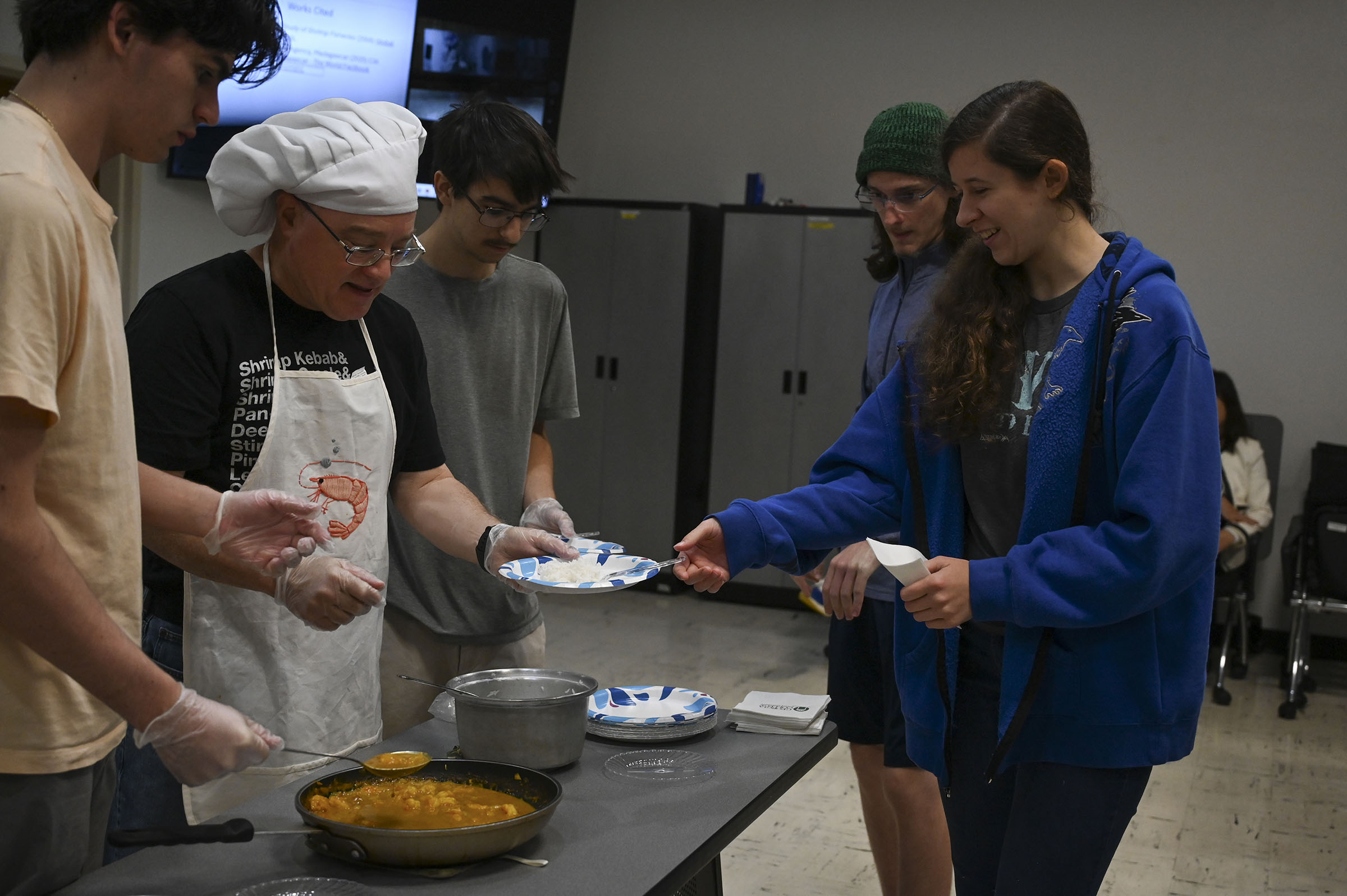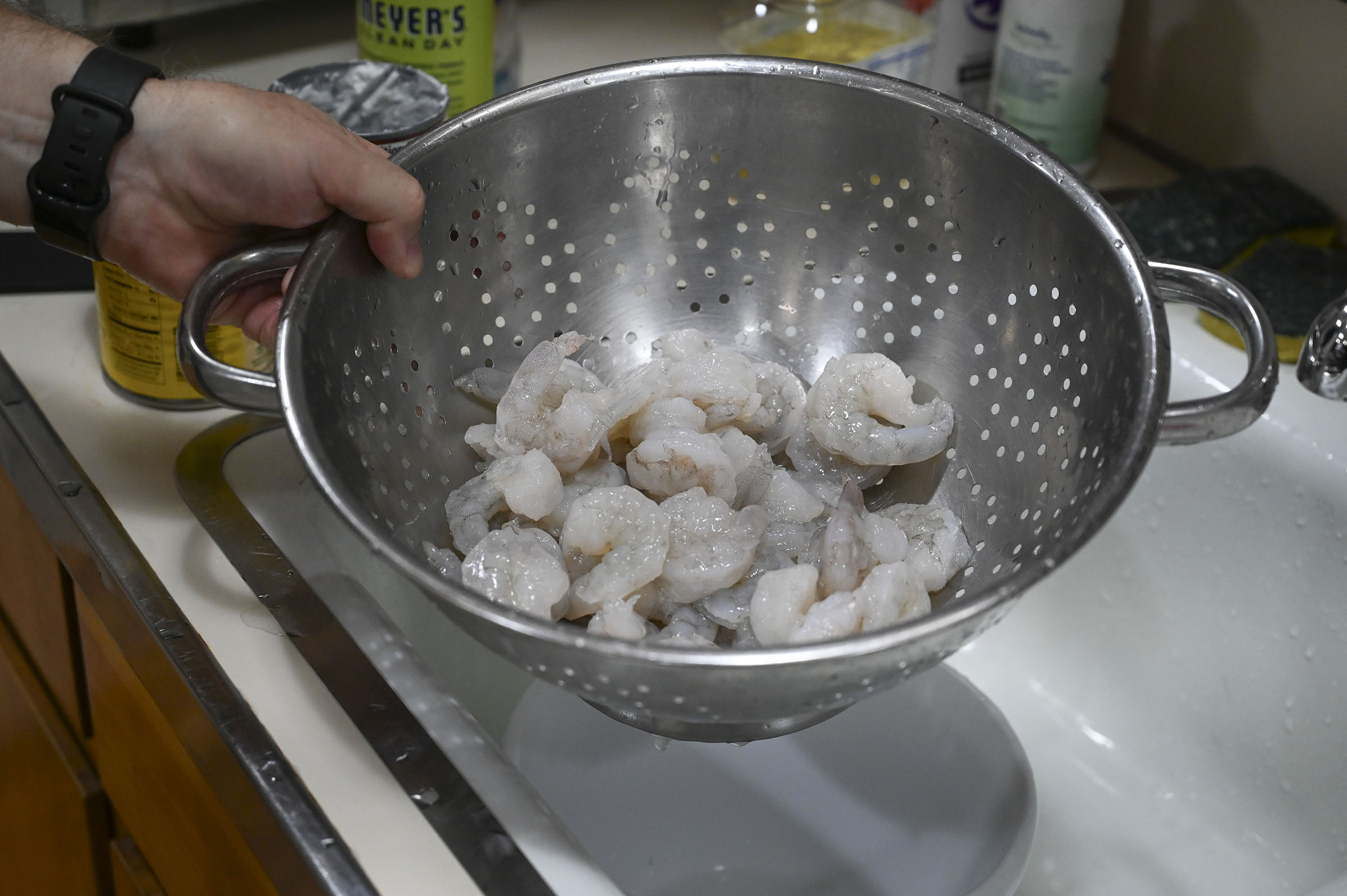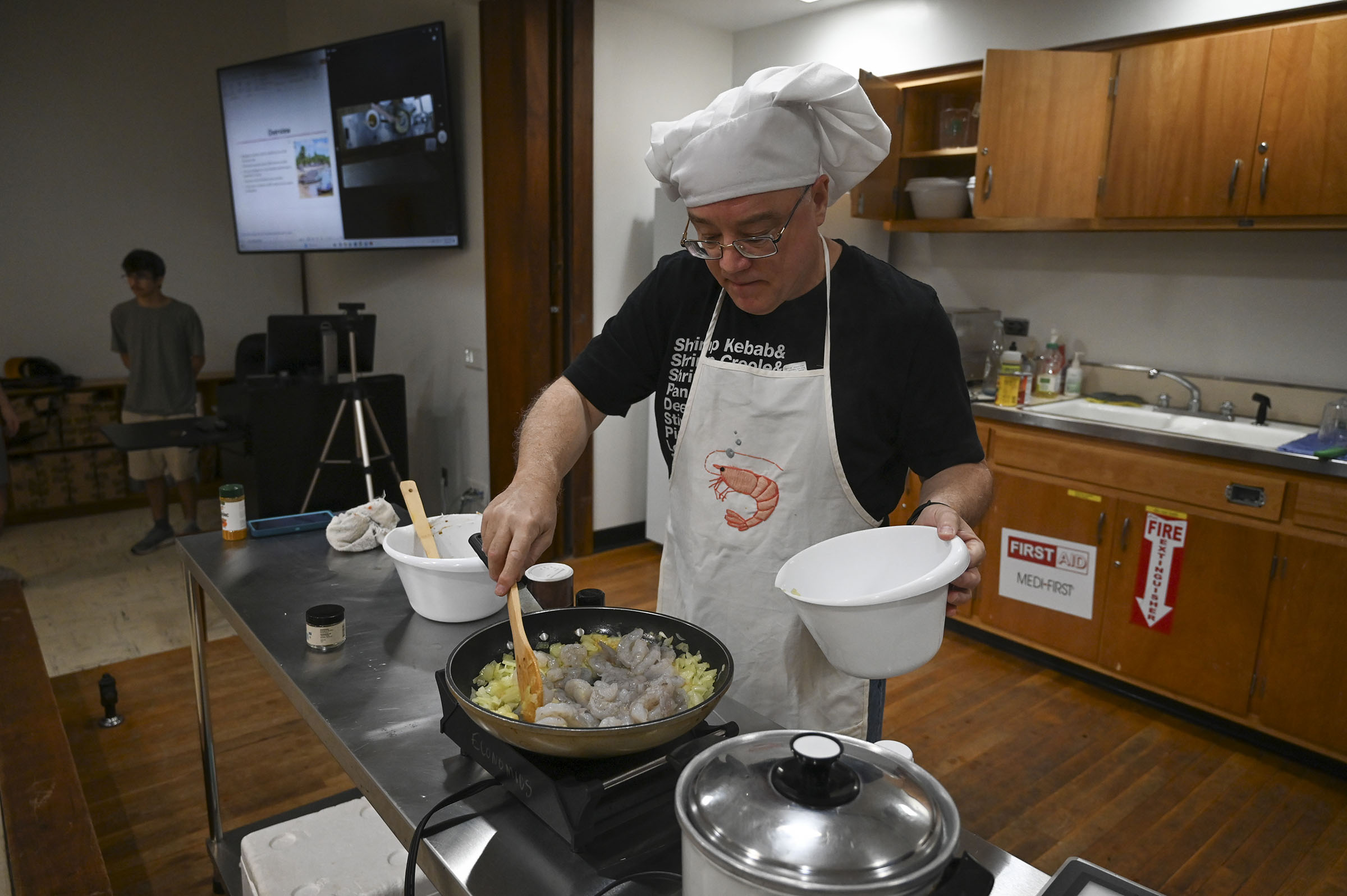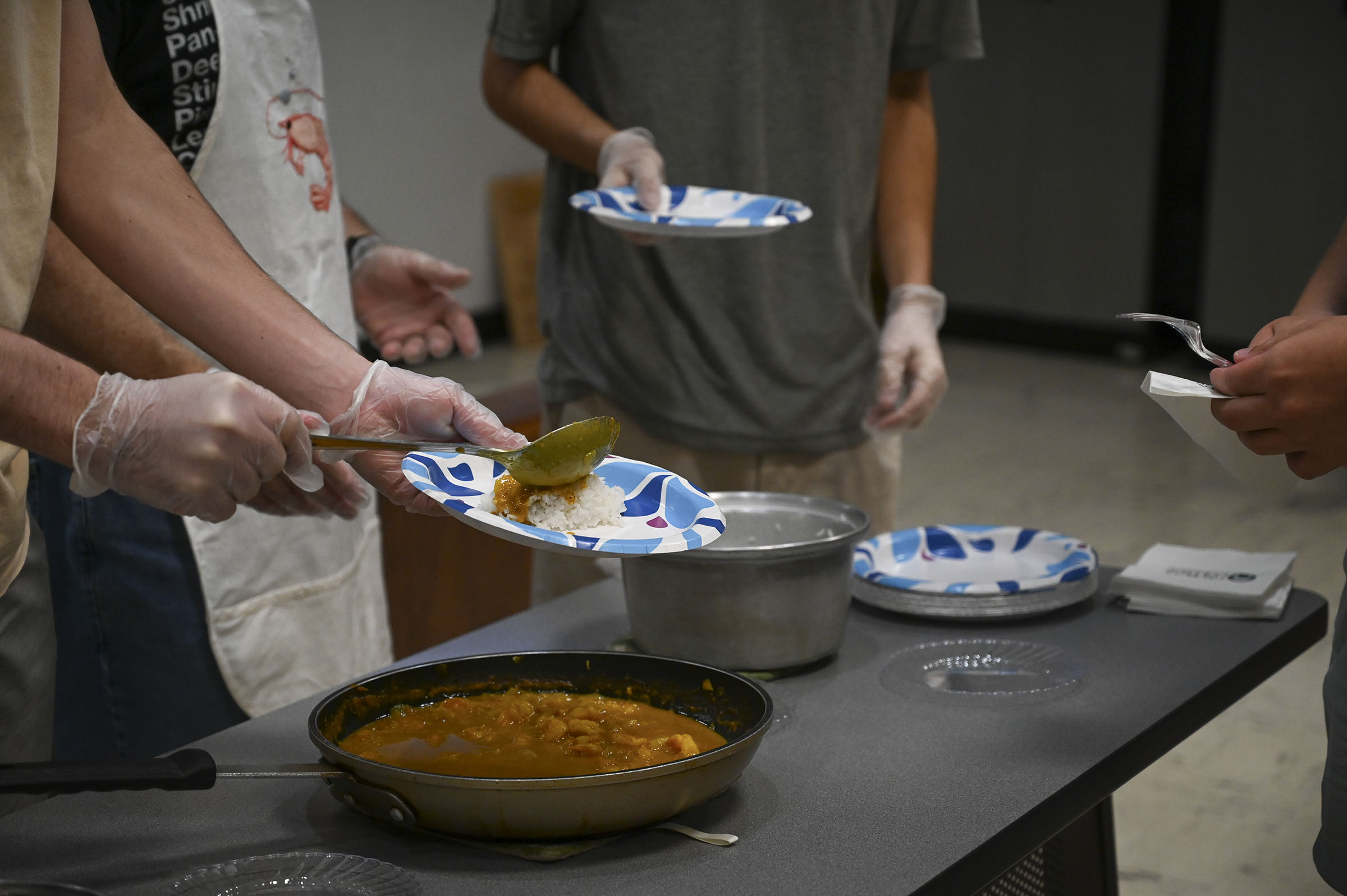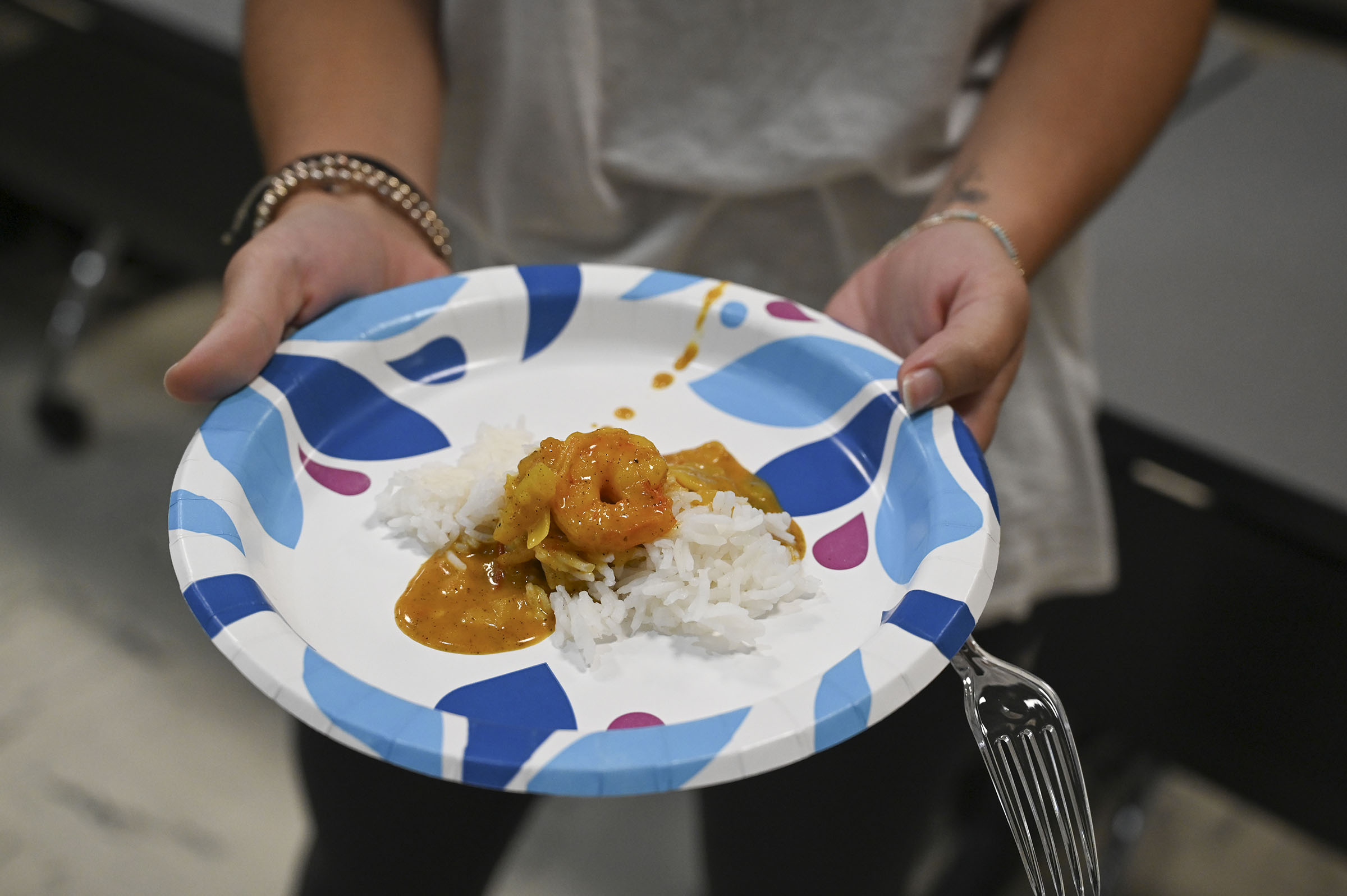Economics professor gives students a taste of the shrimp industry
By Ian Wesselhoff
D r. John Swinton, professor of economics at Georgia College & State University, has always liked to swim against the tide.
Through Georgia College’s GC2Y seminar program, Swinton saw an opportunity to showcase economic thinking in a way that no one else was. He took a semester-long sabbatical to develop the course ‘Global Perspectives: Shrimp Economy,’ designed for students of any major.
“When I put this together, it wasn’t like I was just nuts about shrimp,” Swinton said. “It just seemed like a good idea.”
Now in his fourth year teaching the course, Swinton’s office is speckled with shrimp decor. He even has a shrimp Squishmallow on the couch facing his desk.
“The shrimp have invaded,” Swinton said.
Each Friday, pairs of students give a presentation about the role of shrimp in the economy of a particular country. Meanwhile, Swinton prepares shrimp for the class using a recipe unique to that country. For Cambodia, he steams shrimp wrapped in banana leaves. For Madagascar, it’s shrimp with a pink coconut sauce and vanilla bean.
“The cooking, that’s probably the best thing about the class; showing up on Fridays, get a nice little meal out of it,” said Connor Kelley, a junior from Cumming, Georgia. “And it’s always pretty fun.”
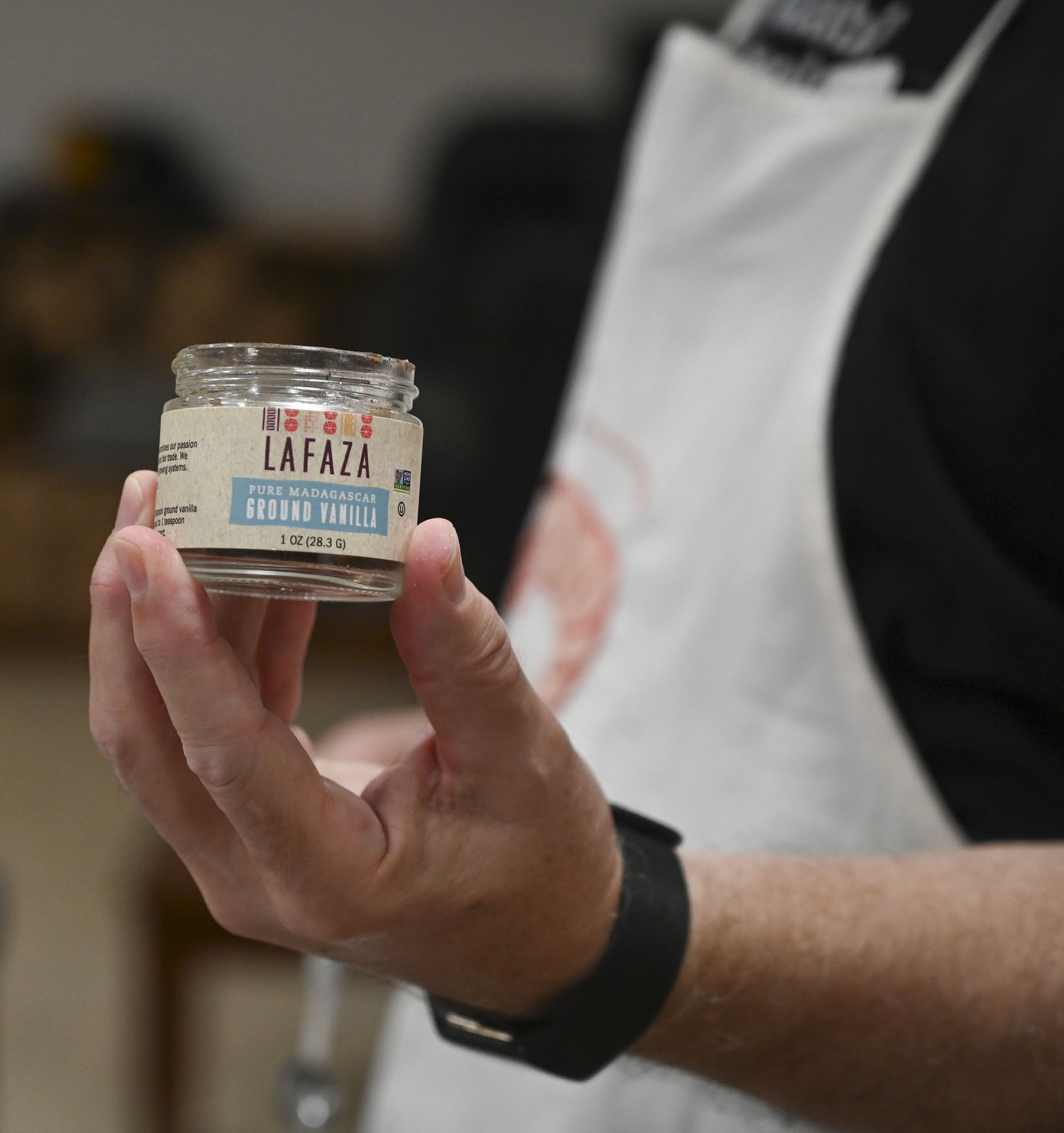
Through these weekly international recipes, students learn about how each dish is shaped by the culture and resources found in its country. As they encounter all sorts of new smells and flavors, Swinton wants them to keep an open mind.
“Rule number one I say going in, the very first thing, is you are not at any point in this course allowed to say the word ‘yuck,’” Swinton said.
The international element of the course means it satisfies the requirements of a GC2Y, which is a mandatory course for all Georgia College sophomores. All GC2Ys must be multidisciplinary, multicultural and address a real-world global issue, ensuring all students at GCSU are engaged in learning beyond their field of interest.
“They’re thinking about the world as more than just their discipline, and they’re getting to see it applied to something – in this case, everyday food that they eat,” Swinton said.
Swinton chose shrimp for his GC2Y for several reasons. The sea creatures are a truly global resource – they inhabit both freshwater and saltwater, so if you have water, you probably have shrimp, he said.
“They’re the most consumed and most traded seafood in the world,” Swinton said. “It’s easy to show how all kinds of different cultures use shrimp as a natural resource, their role as a trade commodity, and what they do with them in their food.”
For the first recipe of the semester, he makes an Australian cocktail sauce and serves it with both wild-caught and farm-raised shrimp. His students’ job is to identify which is which. Generally, they have a success rate in line with random guessing, he says.
From there, he informs them of the difference in price and asks if it’s worth that discrepancy.
“The underlying theme is feeding growing populations. So what do you have to do? What do you sacrifice?” Swinton said. “And whenever you talk about the tradeoffs, that’s economics right there. That’s what I bring.”
The shrimp industry in Georgia – which has long been a staple of the coastal economy – is struggling, says Bryan Fluech, associate marine extension director with UGA Marine Extension and Georgia Sea Grant Program. The industry’s problems are down to the same socioeconomic factors that Swinton discusses in the class.
“The reliance more and more on imported, farm-raised, in many cases … in almost every other way, you’re undercutting the cost of what it takes to produce shrimp here,” Fluech said. “For most people, when it comes to purchasing seafood, price is going to be the driving factor.”
Though Swinton is an economics professor, this shrimp course is not officially an economics class; rather, he infuses economic content into the multidisciplinary structure of a GC2Y, letting students develop an interest in economics through his innovative lessons and creative research projects.
“There’s lots of things that make it difficult, but it’s very rewarding, and that’s what we do,” Swinton said. “And it’s an opportunity to show off what makes Georgia College different.”
